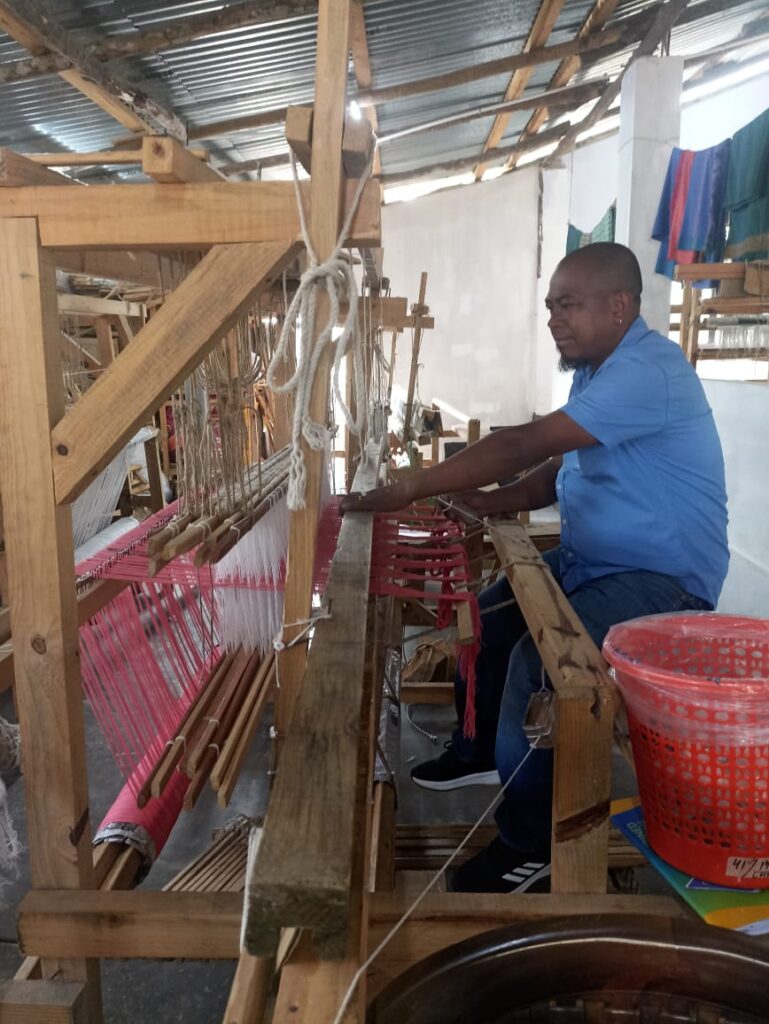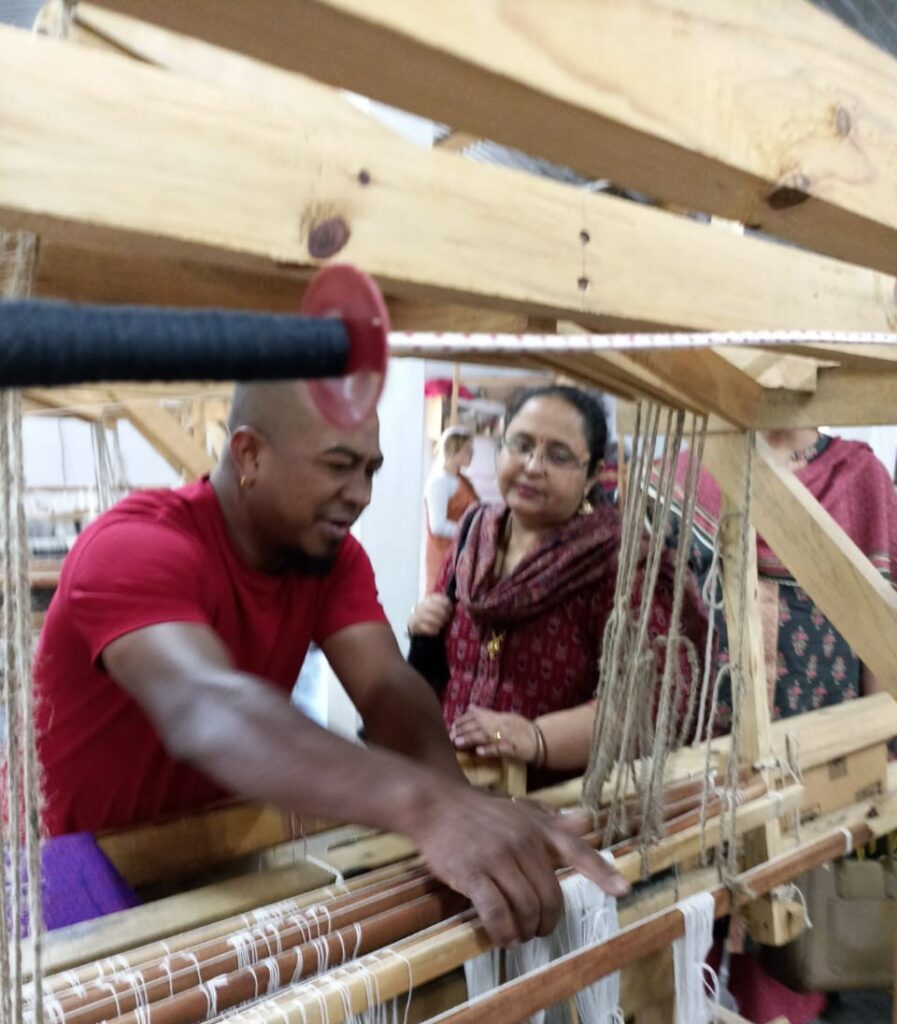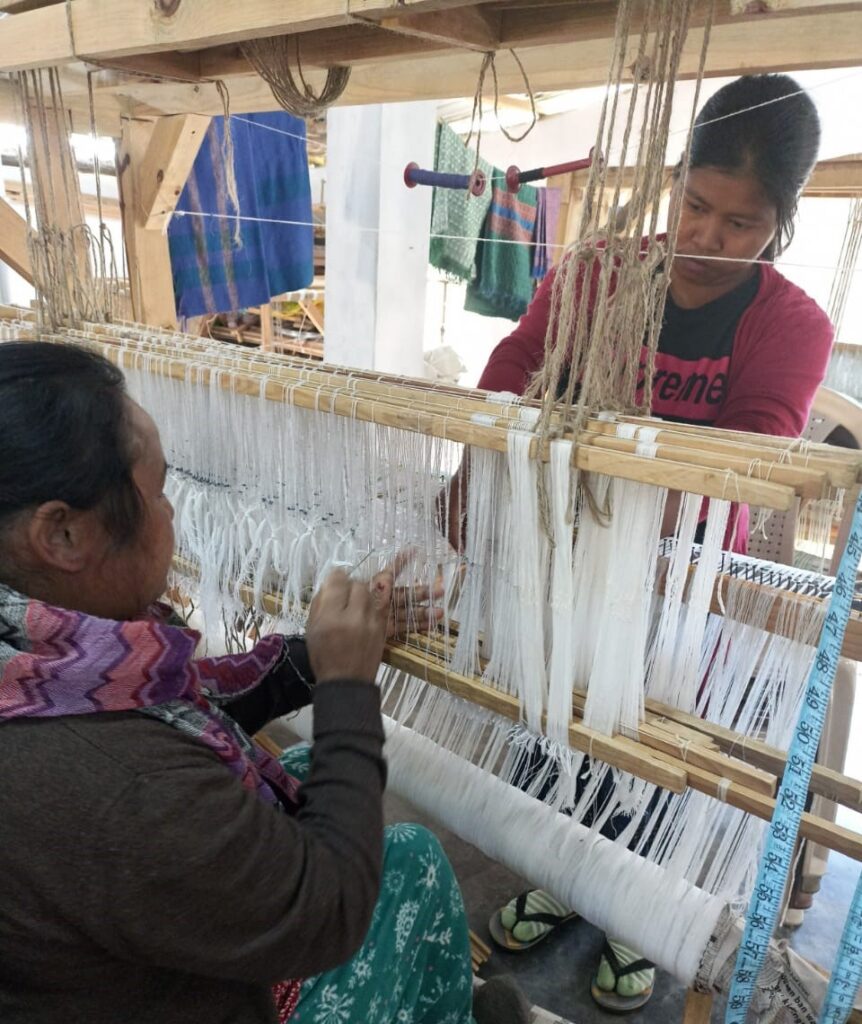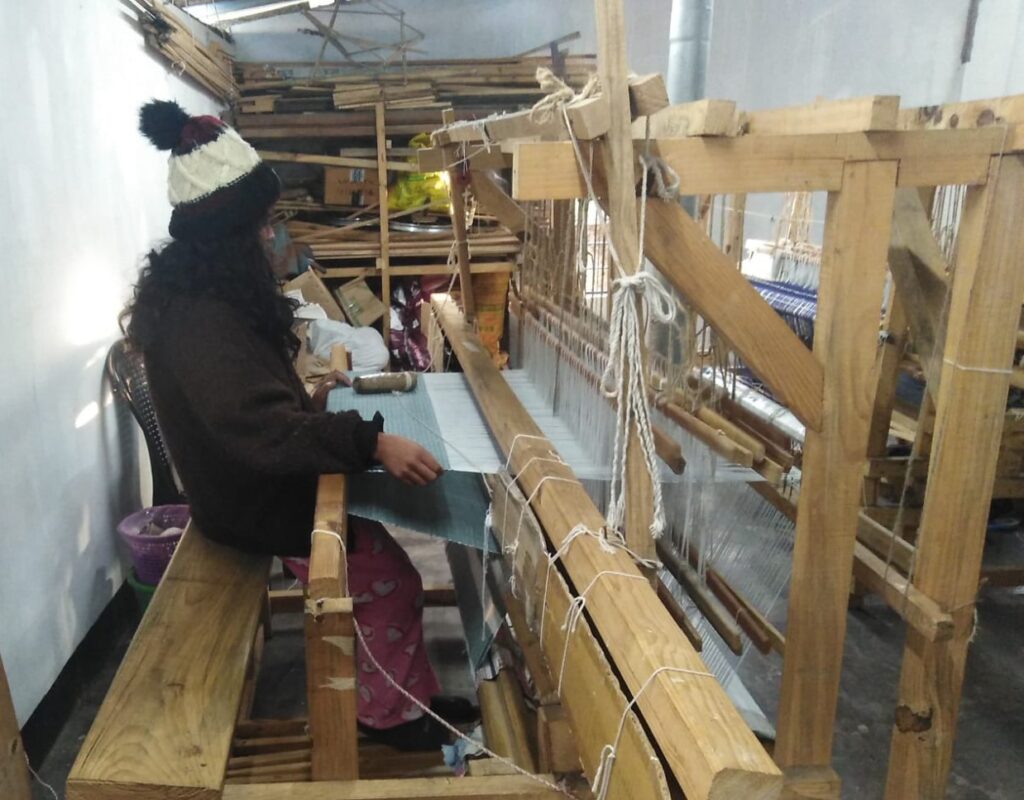James Eventis Dkhar, a 38 year old entrepreneur from Mawkasiang, Meghalaya started his career as a taxi driver but he always dreamt of doing something that would benefit the society as a whole.
Things changed for him when he came across an advertisement in the local newspaper about a training programme on the handloom industry at Mendipathar, Garo Hills. It was during
this workshop that he realised that his true passion lies in weaving and textile where he developed interest on gaining more skills and knowledge of the industry. Hence, he actively participated in various handloom workshops organised by various departments and organisations that gave him an idea on textile designing, handloom technologies and weaving techniques.
It was in 2018 that he set up a training centre on the Flying 8 Loom and later expanding his production unit under the name – Nela Handloom Training Centre cum Production Unit which is a first of its kind in the whole of India.
The 38 year old entrepreneur was associated with PRIME in early 2022 where he walked in the hub in search of funding support. After careful scrutiny, he was shortlisted for financial assistance of 5 lakhs which is a zero interest Scale-Up Innovation Loan which he used for purchasing of Mulberry Silk from Assam which costs around 18k – 20k per kg, making him the first entrepreneur in Meghalaya to use mulberry silk. He also employed more local and youth to work at his centre thereby contributing to a better livelihood.
The Acceleration coaching which is an ongoing programme conducted by PRIME helped James Dkhar in getting better market linkages through PRIME knowledge partner – IIM-CIP. Based on the market connects through IIMCIP, PRIME also connected his Startup to mainland India whereby he can now sell sarees and other fabrics outside the state. Through this programme, PRIME will also try to identify as many pain points and as many problems that James is facing and would try to address them.
PRIME Funding team is also educating him on financial literacy and is helping him understand the costs of raw materials, utilities, labour and packaging. He is now aware of how cash flow works, i.e., how much profit he is making at the end of the year from his sale of products.
Also, once his unit becomes fully operational, his capacity to produce will be on a bigger scale
and hence would require a larger market where PRIME will provide necessary market linkages.
He expressed his gratitude towards PRIME for its support throughout his entrepreneurial journey. He would like to be seen as a light of encouragement and inspiration for other young entrepreneurs especially, the weavers. He hopes that he can further contribute to the livelihood of the community and would like to urge other weavers to approach PRIME to receive their first hand support.






